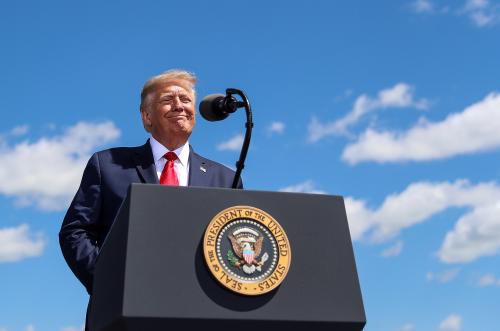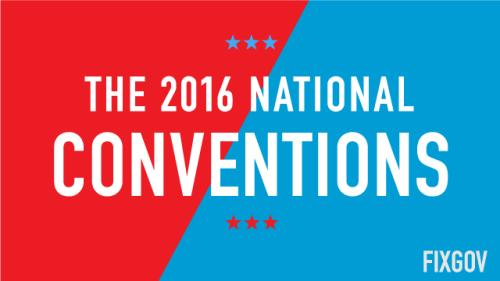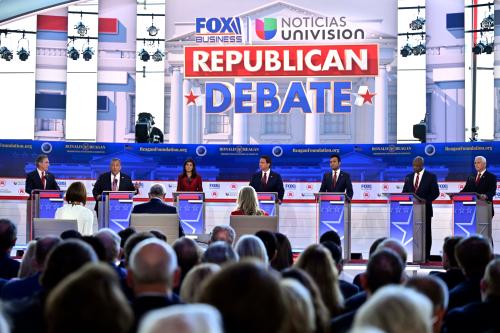On Wednesday night, the Democratic National Convention featured some of its heaviest of hitters: Vice President Biden, President Obama and Vice Presidential nominee Tim Kaine. Each gave different, powerful speeches endorsing Hillary Clinton for the role of commander-in-chief. However, one of the most important speeches of the night was one of the least mentioned, and it came from former New York City Mayor Michael Bloomberg.
Bloomberg did not speak about his liberal social issue of choice: gun control. Since leaving office, he spearheaded and helped fund efforts to change gun laws at the national, state and local levels and has worked to coordinate groups seeking to do the same. As Wednesday evening rolled out—with Bloomberg on the program—it seemed almost a no-brainer that he would focus his speech around gun issues.
Instead, Michael Bloomberg surprised many and went in an entirely different direction.
His speech and ultimate endorsement of Hillary Clinton signaled a force in American politics right now that few people are talking about: the leanings of the business community. Often times, the business community in the U.S. flocks to Republican candidates—especially presidential candidates. And in many cases, that position makes sense. The call for low taxes, deregulation, and a smaller role of government in the lives of Americans is red meat for corporations.
This year, something is different. The business community is worried about Donald Trump. The U.S. Chamber of Commerce, typically the GOP’s best friend in Washington, has expressed dismay at some of Trump’s positions, particularly on trade. Rather than rethinking the political implications of such criticism, Trump threw barbs back at the Chamber. Shortly after the spat with the Chamber, dozens of leaders from the tech sector wrote a letter to Trump detailing how his words and positions can hurt American business interests at home and abroad.
As a businessman, one would think Trump would be the darling of American entrepreneurialism. He is one of them, and his knowledge and understanding of business, commerce, trade, finance, and the policies that affect each should position him well to understand the concerns and needs of that community. Instead, Donald Trump scares many in the business world.
Enter Michael Bloomberg. In some ways, Bloomberg is like Trump. They are both 70-something natives of the northeast who spent much of their life in New York. Both have business degrees from prestigious Ivy League Schools. Both have been Democrats, Republicans and Independents. Both are billionaires. One served as mayor of New York City and the other plasters his name on buildings across Manhattan.
It would only seem natural that Michael Bloomberg would rally behind his fellow Big Apple billionaire.
Last night, he did not.
Nor did Bloomberg stay silent, even though he openly considered running against Clinton and the Republicans with an independent bid for the presidency.
Instead, Bloomberg came out to support a different candidate from New York: Hillary Rodham Clinton. He likely spoke honestly about his own views on policy and the person he feels best qualified to do the job.
However, Bloomberg spoke beyond himself, and truly embodied the American business community. Not every businessperson dislikes Trump. Not everyone will line up at the ballot box to vote for Clinton, and many look out at the choice in 2016 and see much they dislike about Clinton’s progressive views on a variety of issues.
In many ways, Clinton is no friend to many aspects of the business community. Yet, despite those differences, Trump stirs among business leaders a different caution, one some—like Michael Bloomberg—feel the American economy cannot afford.
Bloomberg’s message was a powerful one. He began by simply saying, “It is imperative we elect Hillary Clinton the next president of the United States.” He cautioned that “[T]here are times when I disagree with Hillary Clinton.” He showed himself not to be a Clintonite, but someone with a different, non-partisan agenda. He had kind and supportive words for Clinton, but his greatest caution was reserved to eviscerate Donald Trump.
He led off with the personal, “Now we have heard a lot of talk in this campaign about needing a leader who understands business. I couldn’t agree more. I built a business and I didn’t start it with a million dollar check from my father.”
He went on, “Given my background, I will often encourage business leaders to run for office because many of them share the same, pragmatic approach to building consensus, but not all…we are only as good as how our employees, clients, and customers view us. Most of us don’t pretend we are smart enough to make every decision by ourselves…”
Then Bloomberg telegraphed his message directly to the business community: “I understand the businessman president. But Trump’s plan is a disaster in the making. He would make it harder for small businesses to compete, do great damage to the economy, threaten the retirement savings of millions of Americans, lead to greater debt and more unemployment, erode our influence around the world, and make our communities less safe. The bottom line is a risky, reckless, and radical choice, and we can’t afford to make that choice.”
Donald Trump will react to Bloomberg’s message either with anger or indifference. He will cast off criticism from the business community by arguing they are owned by special interests, but Bloomberg’s endorsement and the cold shoulder from commerce should signal a deeper worry for Republicans. If forces like the Chamber of Commerce, wealthy corporate donors, and the barons of the American economy ultimately do little to assist the GOP in the pursuit of the White House, Trump’s chances of beating Clinton diminishes.
If a pro-gun control, pro-environment liberal like Michael Bloomberg turns his back on Trump, it may not mean much to Republicans. But if the U.S. Chamber of Commerce and the forces, businesses, and people it represents are unwilling to unite behind the Republican candidate, and if the institutional, organizational and financial forces that come through with an assist for the GOP every four years, the Trump-Pence ticket is in trouble. Last night, Michael Bloomberg delivered that message to the business community and the rest of America.





Commentary
Bloomberg’s Clinton endorsement signals a big business problem for Trump and the GOP
July 29, 2016